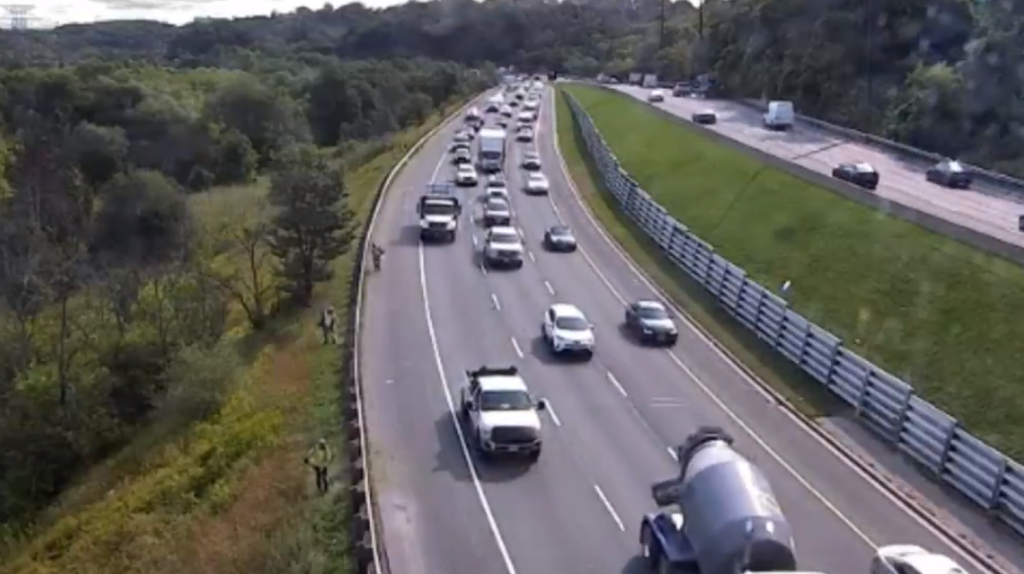Increase of severity in childhood cancers ‘tragic consequence’ of diagnosis delays during pandemic: oncologist
Posted November 15, 2021 11:44 am.
Last Updated November 18, 2021 11:50 am.
A pediatric oncologist is raising the alarm about the increase of severity in childhood cancers she is seeing due to diagnostic delays since the onset of the COVID-19 pandemic.
Dr. Sheila Singh with McMaster Children’s Hospital said in the last year, their unit has seen a big uptick in advanced cancer diagnoses in children.
“I would say that in all almost every case the cancers have been more advanced than in a normal non-COVID year,” Dr. Singh tells CityNews.
“In my training or in my 15 years of practice, I literally have never seen cancer this widespread, or this advanced. And it is really because of the diagnostic delays.”
Dr. Singh said she and her colleagues anticipated this increase last year when their cancer units seemed almost empty, calling it “a ghost town.”
“When you see the hospital this empty, what you recognize is it’s not that there’s a decrease in the incidence of any illness, not in brain cancer, or diabetes, or leukemia or any other diagnosis. All that means is you can expect a double cohort to show up down the road,” remarked Dr. Singh.
“That’s a warning sign for us that we should anticipate much more disease and worse disease down the road.”
Virtual doctor’s visits and fear of COVID-19 has led to a delay in diagnosing brain tumours specifically, a disease already hard to diagnose in children, according to Dr. Singh.
She said one of the more common symptoms of a brain tumour in a child in vomiting, so often they will be diagnosed with the flu on repeated visits.
Dr. Singh said it’s usually through very persistent parents who insist on further testing, like an MRI or a CT of the brain, that a brain tumor is finally diagnosed.
“So even before COVID, the process of the diagnosis for brain tumor is never just one visit. Now imagine the COVID pandemic happens, people are scared to come the emergency room and their child’s vomiting and they can brush it off and say you know what it doesn’t look like COVID, I’ll just wait for this to pass,” Dr. Singh explained.
She also added a virtual doctor’s visit can cause a false sense of reassurance, because doctors can’t preform a proper exam or pick up on subtleties which could again contribute to a delay in a diagnosis.
“For me, it could be the gap of just six months between a tumor that is curable and surgically treatable, versus a tumor that is no longer treatable. And so that’s why with cancer, it’s often a race to diagnosis.”
Ontario Health says they have also documented a decrease in the amount of cancer diagnoses since the beginning of the pandemic. During the first three months, from March 2020 to May 2020, routine cancer screenings were temporarily deferred.
As a result, there were 25 per cent fewer diagnoses between March and August of that year.
Currently, cancer screenings have mostly returned to pre-pandemic levels, but there are still 10 per cent less diagnoses versus before the pandemic.
Dr. Singh said she would like to see a full review of the impact COVID-19 restrictions had on other diseases in the last 18 months. “I really really hope we examine properly the collateral damage that has happened so that we can avoid this in the future.”
“What I believe we failed to do is properly contextualize the impact of this disease in the setting of every other disease.”
She said while they are still working on collecting the data in Canada, studies out of Italy and England showed a significant impact on diagnosing other diseases during the pandemic.
“The COVID pandemic restrictions provided just enough time to push a lot of diagnoses into untreatable or advanced stage range,” said Dr. Singh. “In the future, I really hope that we better consider the impact on other diseases, because if I could buy back that six months for so many patients, then they could have had a different outcome.”
She said the number one message she has for families is to not to be scared to come to the hospital.
“If your child has new and unforeseen symptoms, don’t settle for a virtual visit and false reassurance. Make sure you’re seen in person by a physician or a health care provider to really properly diagnose your child.”
The Hospital for Sick Children said they have been seeing an increase of visits in their emergency room visits with concerns that could be addressed by a primary care provider or a family physician.
SickKids added they have also seen patients who have had limited access in-person primary care that has contributed to the progression of disease.
The Pediatric Oncology Group of Ontario (POGO) who is the Ministry of Health’s advisor on children’s cancer control and treatment says there is currently there is no evidence of a systematic increase in the diagnosis of cancer overall or of advanced stages of cancer among children in Ontario.
However, they are currently working for the Public Health Agency of Canada’s Cancer in Young People program to look at this issue. Results on the first and second wave of the pandemic and how it has affected diagnoses are expected in the coming weeks.










